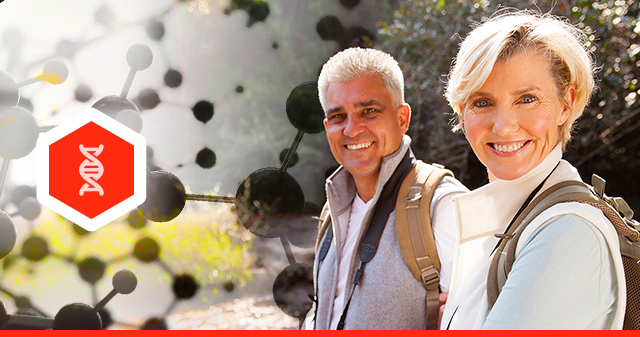
September is Prostate Cancer Awareness Month and Ovarian Cancer Awareness Month, and the Weizmann Institute of Science is doing its part to not only increase understanding of both these diseases, but to develop new and better means of prevention, diagnosis, and personalized treatment.
Here are just two of the many highly promising prostate and ovarian cancer projects taking place right now at Weizmann.
Prostate cancer is today the most common cancer in American men, says the Centers for Disease Control, with one in seven men predicted to develop it during his lifetime – but even with this frequency, virtually all patients now survive. The problem? Treatments can negatively impact quality of life, resulting in erectile dysfunction, urinary incontinence, and other undesirable side effects.
Fortunately, the prostate-cancer therapy developed by Weizmann’s Profs. Yoram Salomon and Avigdor Scherz is moving onto the market – and it’s fast, safe, and virtually side-effect free.
Their technique, which they began developing in the 1980s, destroys prostate tumors by cutting off their blood supply. The method uses fiber optics to light up a unique chlorophyll-based compound, TOOKAD® soluble, at the tumor site. This destroys surrounding blood vessels, basically starving the tumor to death – and leaving healthy tissue intact. The procedure can be performed quickly, on an outpatient basis, and has few, if any, negative effects.
Clinical trials showed the technique to be so successful in treating early-stage prostate cancer that it was recently approved by Mexico’s health authority. It’s also now in advanced trials in Europe and Israel, and extensive U.S. clinical trials are underway at Manhattan’s Memorial Sloan Kettering Cancer Center.
In the hopefully not-too-distant future, Profs. Scherz and Salomon’s TOOKAD method could help even more people: it’s now being studied for treating later-stage prostate cancer and other solid tumors, such as ovary, breast, lung, and gastrointestinal.
Ovarian cancer is a challenge: difficult to identify, difficult to diagnose, difficult to treat. Often, symptoms don’t appear until the disease has reached its later stages; in fact, the American Cancer Society reports that only 15% of ovarian cancers are found and treated in the crucial early stages. Reliable early screening and diagnostic methods are lacking. On top of all this, ovarian cancer tends to be aggressive and treatment-resistant. This is why the Weizmann Institute is urgently investigating the disease from a number of angles.
The legendary Profs. Varda Rotter and Moshe Oren were among the first in the world to discover the role of the p53 gene in cancer. That was more than 35 years ago, and they’ve been studying p53 ever since. Now they’ve found that it can help fight ovarian cancer.
The p53 gene is a tumor suppressor; however, when it mutates, it promotes cancer instead. In fact, mutated p53 proteins are found in around half of all cancers, including some of the most aggressive. Profs. Rotter and Oren’s team looked at peptides – which can easily bind to p53 – and found several that were able to convert mutant p53s to a relatively normal state – to, effectively, “reeducate” them. Noting that one of these peptides was particularly effective against a number of cancers, the scientists tried it in mice with tumors taken from human cancers.
The results were stunning: ovarian and breast tumors shrank, and sometimes even completely disappeared – and with no apparent adverse effects to the animals, which bodes well for treatment in humans.
Profs. Rotter and Oren – who is now head of the Institute’s Moross Integrated Cancer Center – are currently working with Yeda Research and Development Co. Ltd., Weizmann’s technology transfer arm, to move their “therapeutic peptides” toward medical application.
“In cancers such as ovarian cancer, the p53 gene may be 100% mutated. And the prognosis for this cancer is still very poor,” says Prof. Rotter. She continues: “So we hope that a drug that ‘reeducates’ mutant p53 would have a profound effect on the outcome for these patients.”
You can help make Prof. Rotter’s hope a reality – and the hopes of all the Weizmann scientists who are devoting themselves to creating innovative treatments for cancer. Together we can ensure that these lifesaving breakthroughs continue to happen … for the sake of women and men everywhere.
